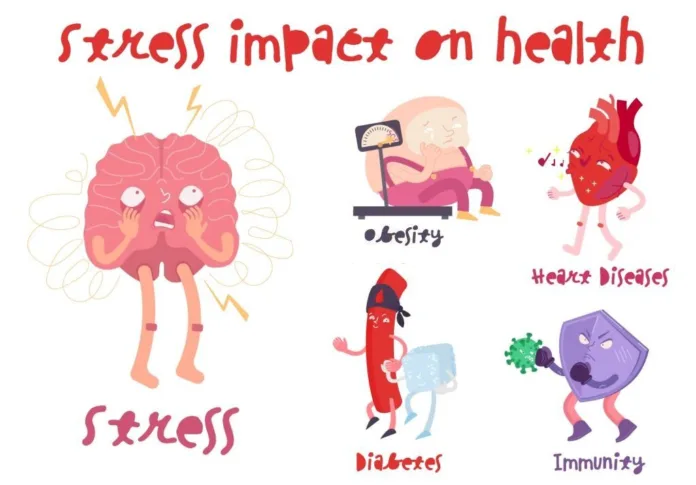Stress is a normal part of life. It can be caused by a variety of factors, such as work, school, relationships, and finances. While some stress can be motivating and help you to perform well, too much stress can have a negative impact on your health.
How stress affects your body
When you are stressed, your body releases a number of hormones, including cortisol and adrenaline. These hormones prepare your body for the “fight-or-flight” response, which is a natural response to danger.
The fight-or-flight response causes a number of changes in your body, including:
Increased heart rate
Increased blood pressure
Increased breathing rate
Dilated pupils
Sweaty palms
These changes are designed to help you to escape danger. However, when you are stressed on a regular basis, your body remains in a constant state of fight-or-flight. This can have a number of negative health consequences, including:
High blood pressure
Heart disease
Stroke
Diabetes
Obesity
Mental health disorders, such as anxiety and depression
Insomnia
Digestive problems
Headaches
Muscle pain
Weakened immune system
How to manage stress ?
There are a number of things you can do to manage stress, including:
Exercise: Exercise is a great way to reduce stress and improve your mood. Aim for at least 30 minutes of moderate-intensity exercise most days of the week.
Relaxation techniques: Relaxation techniques, such as yoga, meditation, and deep breathing, can help to calm your mind and body.
Time management: Learning to manage your time effectively can help to reduce stress and anxiety.
Social support: Spending time with loved ones and talking about your problems can help you to feel better and cope with stress.
Healthy lifestyle choices: Eating a healthy diet, getting enough sleep, and avoiding smoking and excessive alcohol consumption can all help to reduce stress.
If you are feeling overwhelmed by stress, it is important to seek professional help. A therapist can teach you additional coping skills and help you to develop a stress management plan.

Here are some additional tips for managing stress:
Identify your stressors: What are the things in your life that cause you stress? Once you know what your stressors are, you can start to develop strategies for coping with them.
Avoid negative people and situations: Negative people and situations can add to your stress levels. If possible, try to avoid them.
Take breaks: When you are feeling stressed, take a few minutes to relax and clear your head. Go for a walk, listen to music, or read a book.
Say no: It is okay to say no to commitments that you do not have time for or that will add to your stress levels.
Learn to forgive: Holding on to grudges and resentment can cause stress. Learn to forgive yourself and others.
Stress is a normal part of life, but it is important to learn how to manage it in a healthy way. By following the tips above, you can reduce the negative impact of stress on your health and well-being.




